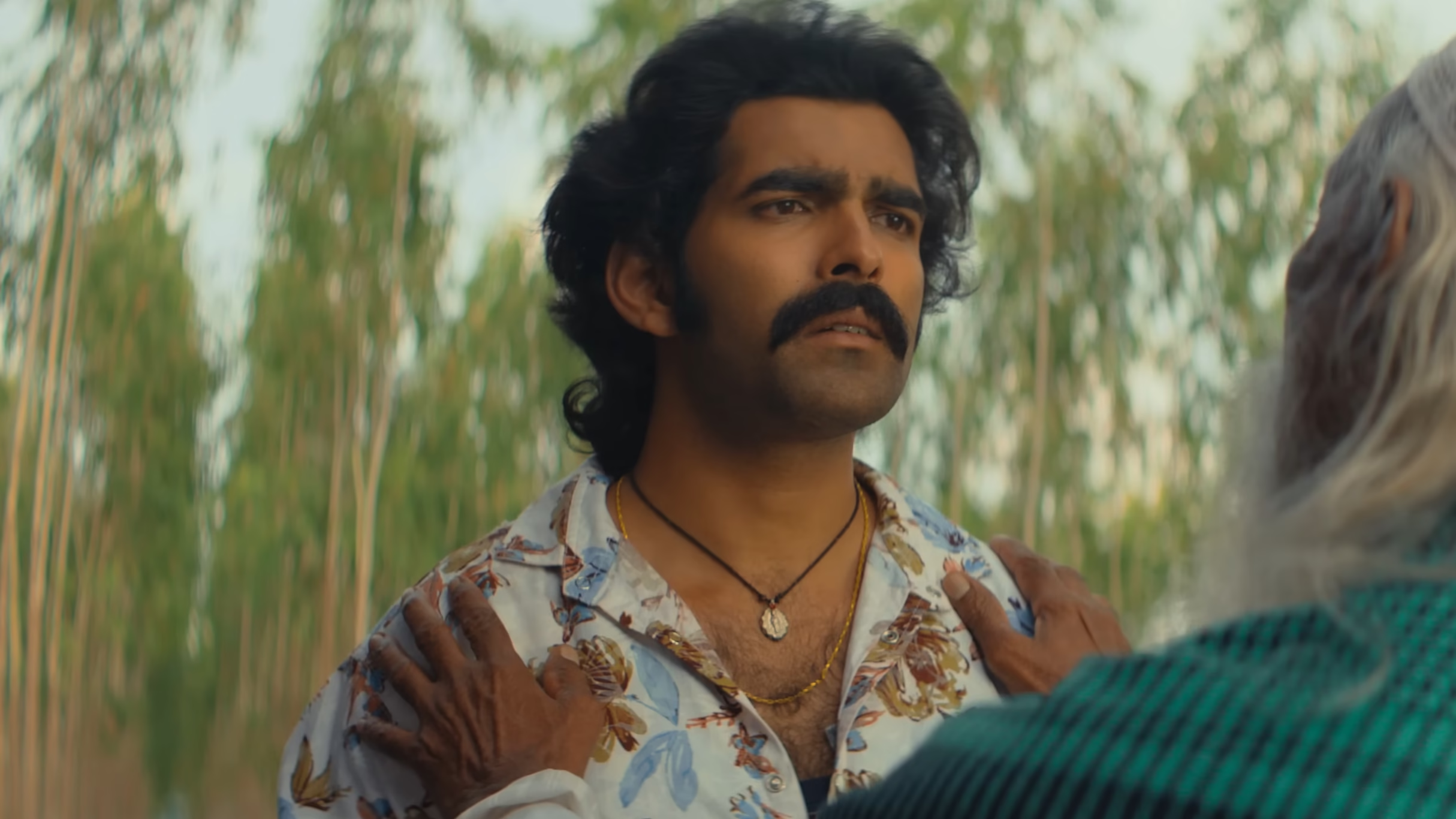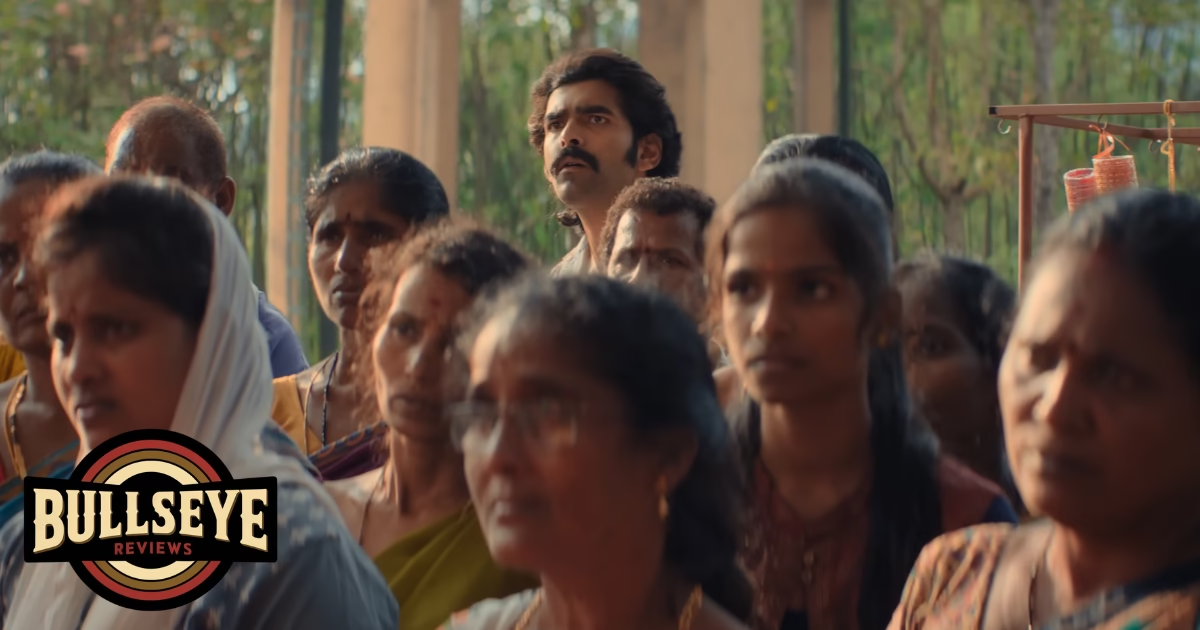A Quirky Village Satire That Aims High, Lands Halfway
Introduction: A Satirical Lens on Rural Life
Set in the nostalgic backdrop of 1990s Andhra Pradesh, Kothapallilo Okappudu presents itself as a light-hearted rural drama but quickly turns into something more layered — a satire filled with questions around belief, power, and identity. Directed by Praveena Paruchuri, best known as the producer of C/o Kancharapalem, the film opens with a quote by Anaïs Nin — “We don’t see things as they are, we see them as we are.” It sets the tone, but the execution doesn’t always match the ambition.
Plot Summary: A Myth That Becomes Bigger Than the Man
The story follows Ramakrishna (Manoj Chandra), a carefree village youth who runs a recording dance studio. Hopelessly in love with Savitri (Monika T), the zamindar’s daughter, he ends up fabricating a story to win her attention. But the lie spins wildly out of control, gripping the entire village in a belief system that Ramakrishna himself starts to question.
Through the village’s caste divides, class power struggles, and emotional complexities, the film reflects on how myths shape our collective reality.
Performances: Fresh Faces, Solid Impact
Manoj Chandra makes an assured debut as the flawed yet fascinating Ramakrishna. His portrayal of a man driven more by ego than love is refreshing. Usha Bonela as Adhi Lakshmi (a.k.a. Andham) is arguably the soul of the film — she brings empathy, humour, and grace in equal measure.

Ravindra Vijay delivers one of his best performances as the creepy and controlling financier Appanna. Even when not on screen, his character’s presence lingers ominously. Monika T, however, doesn’t get enough scope, and her character arc feels underwritten.
Visuals & Music: Capturing the Soul of a Village
Petros Antoniadis’ cinematography shines throughout. The landscapes of rural Andhra are captured with love — muddy tracks, painted walls, temple lanes, all brought to life in earthy hues and natural light. The art direction keeps it grounded and immersive.
Musically, Varun Unni and Mani Sharma provide some nostalgic value, but the soundtrack doesn’t quite hit the emotional high notes. The background score is serviceable, though more emotional depth could’ve added weight in the second half.
Strengths: Satire and Social Commentary That Works
Thought-provoking themes: caste, class, belief
Several characters are written with depth and nuance
Unforced humour and naturalistic dialogue
Fresh acting talent that brings authenticity
A few standout sequences — like the dance practice scene between Adhi and Savitri — add real charm
Flaws: Screenplay Could Have Been Better
While the first half establishes the world and characters with ease, the second half juggles too many themes. The shift in tone from satire to social critique isn’t smooth, and the screenplay could have been tighter and more emotionally resonant.
Certain scenes, especially involving Savitri, feel redundant. The final act tries to deliver philosophical depth, but the messaging doesn’t land with the intended impact.
Final Verdict: ★★★☆☆ (3/5 stars)
Kothapallilo Okappudu is sincere and smart in its intention — a rural satire that talks about belief, truth, and how power can bend both. Though its screenplay could have been better and some characters underwritten, the film still offers a lot to admire — from its rustic visuals to some wonderfully written characters.
It’s not flawless, but it is fearless in its attempt to say something meaningful without sounding preachy. Give it a shot if you’re in the mood for a Telugu indie that’s a little offbeat and a little profound.

